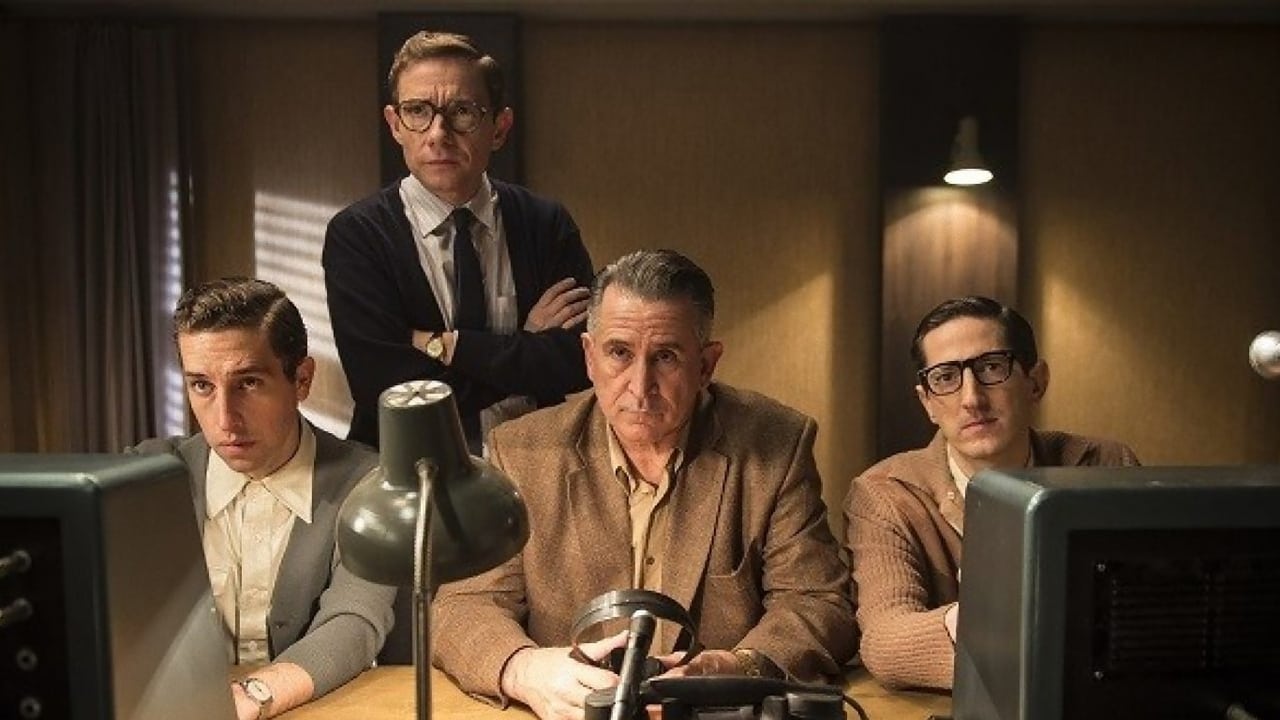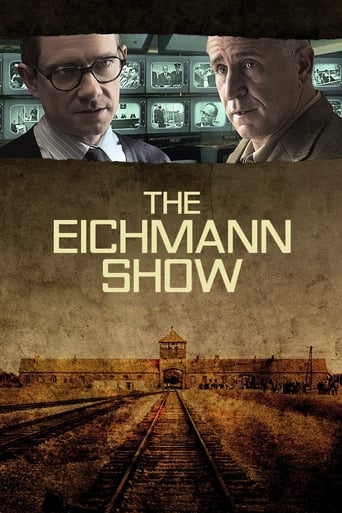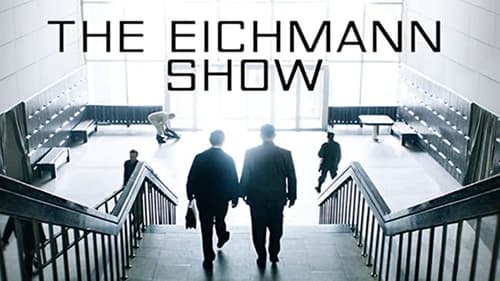


The Eichmann Show: Directed by Paul Andrew Williams and written by Simon BlockThis is the true story behind the broadcasting of the trial of Nazi war criminal Adolph Eichmann in Israel. The true story that this is based on is an important one. It is something that people need to learn. It is also something that can be learned by watching a documentary. The strong aspects of it are from the real footage. This felt more like a Wikipedia page about the event brought to life. There are brief moments with Leo Hurwitz trying to find the humanity in Eichmann. He finds that he is failing miserably. Everyone is stressed out and Nazi sympathers are trying to stop them.While Martin Freeman makes everything look effortless, he's not given much to do here. Anthony LaPaglia does a lot of internal thinking. It's hard to make that cinematic and it pales in comparsion because of it. I understand where it was coming from but I wanted more from these characters. I know this is just my opinion and idea of what to make of everything. They stress the importance of the event and the history making they're doing which is really just an overabundance of the same thing. It's also something that only people looking back at an event usually feels like. You see it on everyone's faces as they watch. There is a lot of people standing around and just watching things unfold. It doesn't make for the most fascinating viewing. I would skip this one if you find a chance to watch it. It's just too basic for me. I give this movie a C.
... View MoreThis movies tries too hard to create conflict and tension within the film crew characters but the already known facts of the atrocities swamp and nullify the emotions exhibited by the characters. A rather bland depiction of a very important event in history. Throwing in children and wives to tug at the heart strings does nothing for this movie. A riveting story was already there and attempts to embed an emotional tear jerker behind the scene fails to deliver. A lot of drama revolved around controlling 4 cameras and missing the best shots. Shouldn't be rocket science - which rightly so was taking away a chunk of the viewing audience. The use of the historical footage was good and the colour shots looked rather unnecessary.
... View MoreAlthough this is an excellent drama in every respect other than the casting of Martin Freeman who has neither the gravitas or personality in this part to be convincing. A very good actor but should confirm himself to lighter roles. This spoiled an otherwise very well scripted and directed film. The original footage was harrowing in spite of it being seen many times before it never ceases to shock and repulse, this made Martin Freeman's casting all the more baffling. How and why did the director and casting director ever come to an agreement on this, I could name at least four actors that would have been far better choices, particularly as the LaPaglia part was absolutely spot on. The Landau character was also perfect and if it had been made for the cinema and not just TV would reap many awards.
... View MoreYou need to be dead to be unmoved by this. I had family in several camps, some nearly murdered in Katyn instead feeling "lucky" to be deported to Siberia where 80% did not survive. All around me as a boy there were camp survivors, how could I think they had made up even the least horrifying of the stories they thought I, a child, could stomach and understand? This film about the production crew who had to film the trial and not crack, not loose focus and not drop to the same level as the beast; it is important. It is important because even as they sat there and did their work, one man kept saying that we are all just as capable as Eichmann to cross that line, to be a fascist, to be the beast we do not believe we can be. How in 90 minutes can you convey the horror of the crimes and the effect of 4 months day in day out on those made to be there till the end of the trial? Probably not nearly as well as they would have liked and I suspect it would have been impossible. But come close they did with a series of powerful scenes that exposed the raw nerves, the sense of frustration of the survivors followed by the dignified and stoic release of tension when they knew the world was listening. In their lifetimes they had been allowed to tell their story and see justice of a sort.The closing statement of the piece lifted from the original tapes reminds us of how close so many even today stand at the threshold of repeating these dehumanising acts. The film leaves the viewer in no doubt that the lessons learned in 1961 have been unlearned in many countries since and often with the same grim superiority and justifications. The unnamed nations and future monsters I leave to your imagination as does the film.How often the entire process could have been derailed by well meaning judicial decisions, outside threats, and the unfolding events that at the time did overshadow the trial itself. How these bumps in the road were dealt with are explored with a deft touch that kept us in mindset of the director who at the end of the day needed to keep his mind clear and the staff focused on the job. The production of the trial is the star of the show but never shakes the feeling that it was ever going be like anything before or since. Many of the techniques pioneered at that trial are now taken for granted when broadcasting such events proving yet again that some of the most obvious things today are a result of forced innovation.As for the cast, some better known for comedy and light drama, this was a wonderful chance to show they could do the heavy stuff, often in accents utterly foreign to them. Being a BBC film made to air without adverts and about subject matter that at times was deeply troubling, the script does not waste a second and you never check your watch. I particularly appreciated the use of the many European languages representing the vastness of the crime, then allowing the haunting song during the camp montage to be sung in Polish. Poles, Jews and Catholics alike,suffered massively at the hands of the Nazis and would have been the language most spoken in the court, it seemed only right.One can never say about such a film that you enjoyed it, or that it was thought provoking, that would be strange and wholly inadequate. I would say though that it accomplished what it set out to do really well.
... View More